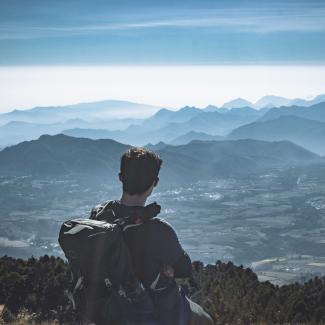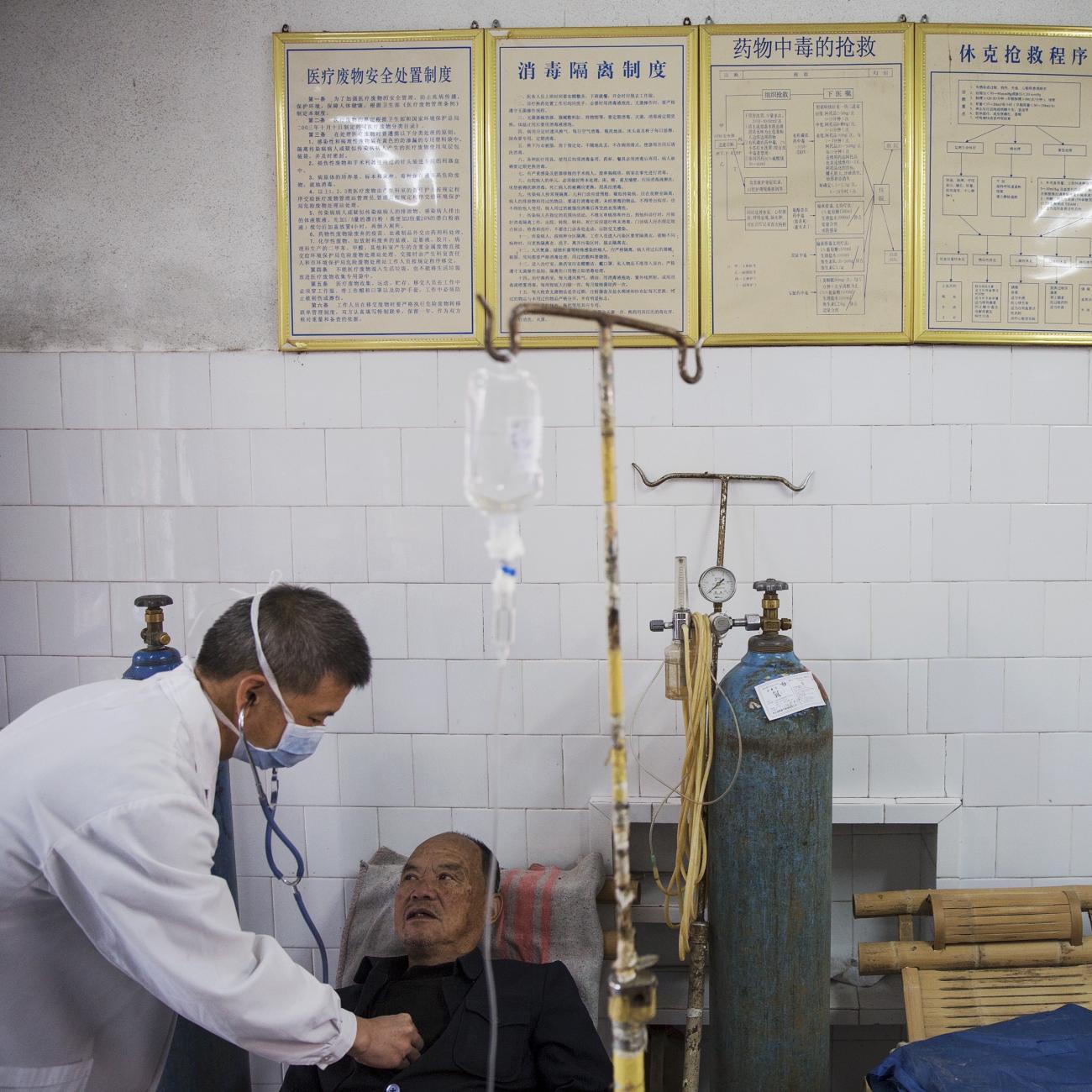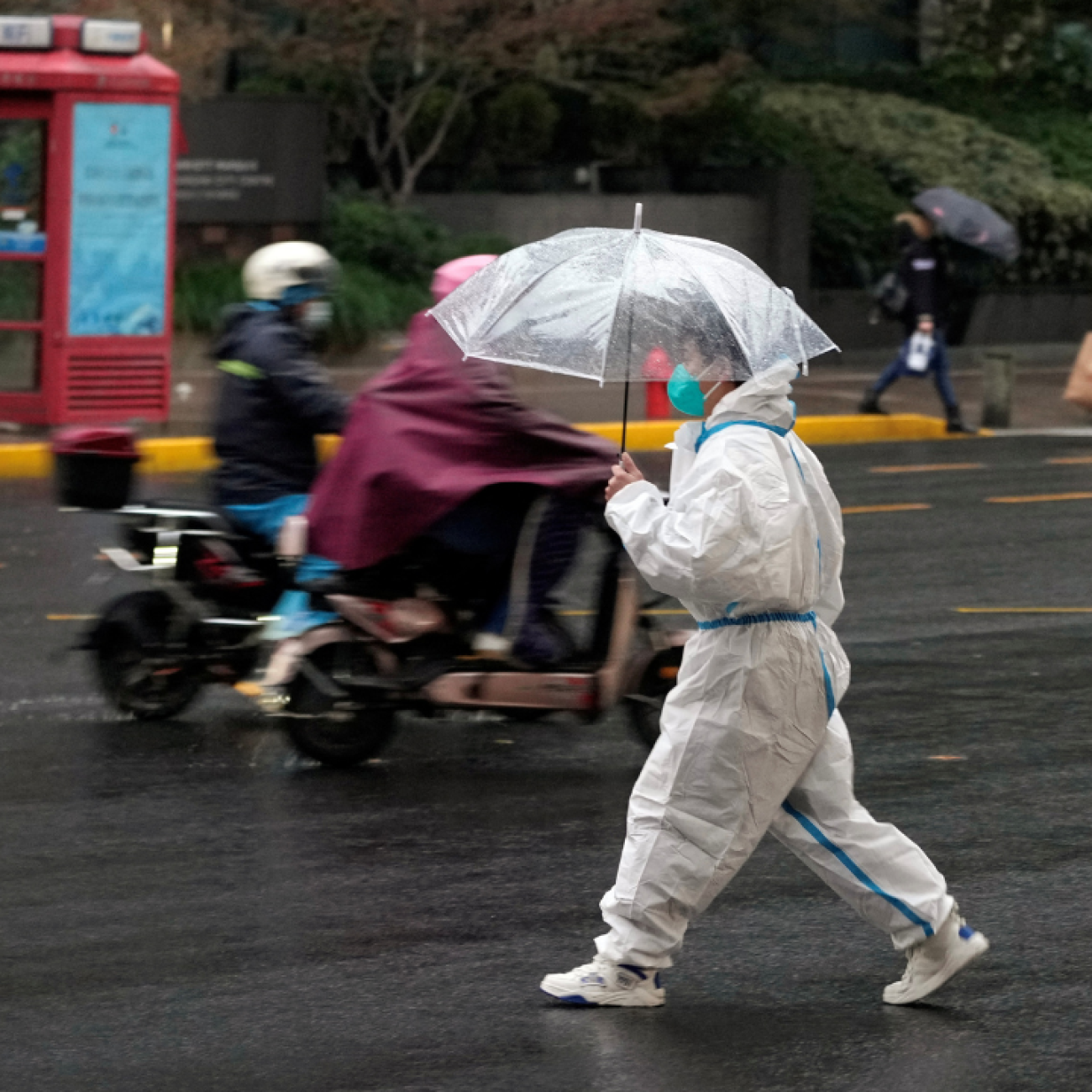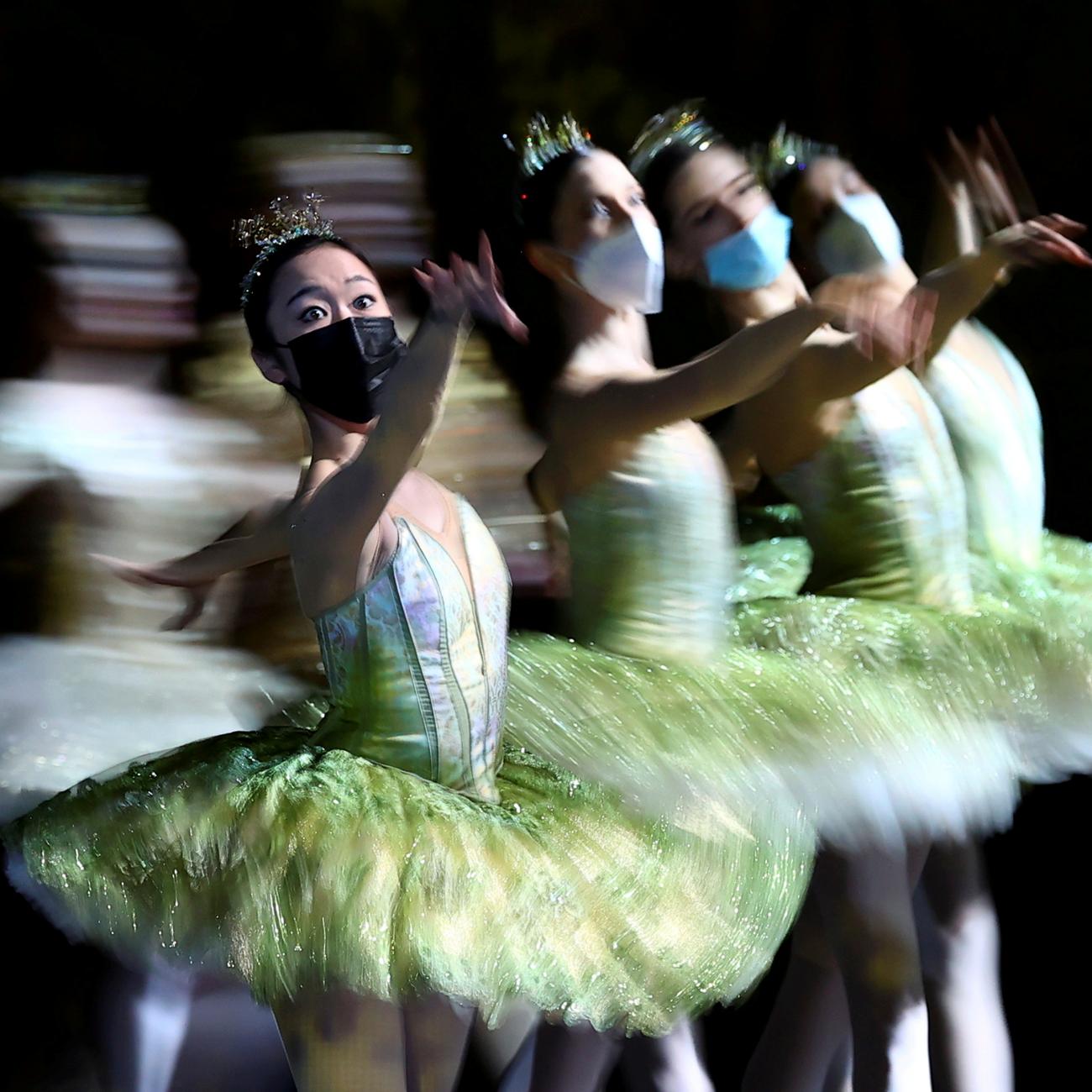Omicron is now spreading in China at rates never seen before. The basic reproduction number (R0) of the omicron variant is approaching sixteen—meaning that every person who catches COVID-19 is spreading it to another sixteen people on average. Think Global Health interviewed Ali H. Mokdad for a Q&A on the Institute for Health Metrics and Evaluation's (IHME) COVID projections for China.
Mokdad is an epidemiologist and the chief strategy officer of population health at University of Washington. He is part of the team that runs the COVID-19 projections, which were last updated on December 16, 2022. Before the pandemic, he worked with the China CDC, in the field epidemiology training programs. He has trained physicians and helped set up disease surveillance systems in China.
□ □ □ □ □ □ □ □ □ □ □ □ □ □ □
Think Global Health: What are your current COVID-19 projections for China?
Ali H. Mokdad: So far, IHME has projections until April 1, 2023. The researchers are projecting about 300,000 deaths in China, and 500,000 deaths if there are no mandates [such as mask wearing and utilizing antivirals].
IHME also has long term projections between 1.2-1.3 million deaths, and about 1.6 million deaths by the end of 2023. If there are no mandates [reimposed to slow the spread of the virus], it's going to be a really dire situation in China.
Basically, a lot of people in China were not previously infected by COVID. In the United States, 98 percent of the population has been infected by COVID. In China, you have, what we call in epidemiology, a population that's COVID naive.
And the vaccine that [China's government] has used is less effective than the mRNA vaccines used in the United States. China also vaccinated its population earlier in the pandemic and there is a waning immunity from those vaccines, so many people right now are susceptible to infection—especially the elderly who are less vaccinated. The variant that's circulating right now is a super spreader.
Think Global Health: What do those numbers mean for the COVID situation, both in China and around the world?
Ali H. Mokdad: For China, [COVID] will overwhelm health facilities. The researchers at IHME believe that [the Chinese government] will not allow this to happen, so [China] will hit the brakes when the capacity of its hospitals or medical systems exceed 80 or 90 [percent utilization]. It will hit the brakes hard and [implement public health interventions].
What [China's situation] means for the whole world is there will be less medical supplies available because China is the major producer and now needs the supply. This will also result in a lot of economic damage because China is a major producer of goods. There'll be delays in supplies, etc. Everybody in the world will feel what's happening in China.
It's important for the rest of the world to remember to help China as fast and as much as possible by donating vaccines, supplies, and antivirals. If you remember, when delta hit India, it was all over the news, people sent supplies to India. I hope to see the same here. I hope that the whole world will stop and support China.
Think Global Health: Massive waves of omicron infections have been reported around China already. How quickly do we need to act, both internationally and domestically in China?
Ali H. Mokdad: It's never too late—saving one human being is precious. Chinese people have high rates of wearing masks, and could start using better quality N95 [masks] and reduce the spread of the virus.
It's important for everybody to realize even people who have been infected still play a big role in preventing others from getting infected by wearing a mask. So, the message for everybody in China [is to keep] wearing a mask and continue wearing a mask even after you have been infected.
The Chinese government can do a lot of things like relax the rules about getting mRNA vaccines and antivirals, That way, they can vaccinate the elderly [with mRNA vaccines] and reduce hospitalizations and mortality.
Think Global Health: Are there any estimates about what percent of China's population right now is already infected?
Ali H. Mokdad: [The government] is not releasing data and the numbers they're putting out don't make any sense. So that's a challenge. During a wave like this, China (and no country in the world) is able to keep up reporting infections and mortality. What public health professionals count on during [a surge] is hospitalizations because that's easier to report and easier to track. To do that, data on how many people are admitted for COVID needs to be available. Those patients then need to be separated for the infection control in the hospital.
China has a good surveillance system. When I was at the U.S. Centers for Disease Control and Prevention, I worked on setting up surveillance systems in China. I know it has the capacity, but is it releasing that information to the public and to other countries? That's the question, but China knows what's happening, especially hospitalization numbers.
Unfortunately, China is not releasing these numbers and it is not providing data in a manner that's updated on a daily basis to track the pandemic.
Think Global Health: Lunar New Year, China's biggest holiday—and the world's largest mass migration—is coming up on January 22. For many people, it's the one time of year to go home to see their family. How can Chinese people balance COVID precautions with the holidays?
Ali H. Mokdad: From a personal standpoint, if I were in China as a Chinese person, I would want to visit my mom. I would put on a mask and I'd do it.
So it's very hard for me to imagine that [the Chinese government] will be canceling travel around that time unless hospitals are overwhelmed. But Chinese people deserve to celebrate. All of us deserve to celebrate and be with our families. Take all the precautions right now by getting the vaccine and the booster, or whatever regimen is available. The best vaccine for you today is the vaccine that's available to you today. So get the vaccine, wear a good quality mask, and limit your mobility, and then everybody in China will celebrate.
Think Global Health: Do you think it's a problem that the government is sending out messaging on how COVID is just a little cold ever since the Chinese government pivoted away from zero-COVID?
Ali H. Mokdad: The reality is yes, omicron is less serious compared to delta, but with the large number of infections in China and the elderly population, it's a major health risk and many people will die.
The government shouldn't come out and tell the public this is like a flu, and that people shouldn't worry about it because omicron is going to spread quickly. The government should tell the public to be careful and wary.
Throughout this pandemic, every country in the world and public health professionals learned that the hardest part has been health communication. The Chinese government can do better informing its citizens how to curb the spread of COVID. For example, the United Kingdom made graphics explaining what to do if you're infected.
Without informing the public what's happening and providing readily available information many people will not know that they have COVID-19, especially young and healthy people. They could assume it's the flu or a cold and continue going out without masks. Public health messaging is very important right now.
Think Global Health: How can public health messaging be improved in China during this outbreak?
Ali H. Mokdad: Local messaging has to be local. People trust their communities. Therefore, it's very important to involve local community leaders in public health messaging. It should not come from somebody in Beijing. It should not be a political message. Take the politics out of it, make it a public health message, have people who are working on the ground, rolling their sleeves and taking care of patients speak up. Telling people the truth and what to expect is crucial. Nobody wants to get sick. Nobody wants to infect their family and loved ones. An honest and straightforward message from local communities will make a big difference in curbing COVID spread.
EDITOR'S NOTE: This interview was conducted via Zoom and has been edited for length and clarity.







